Interview: Notendo (w/ Jeff Donaldson)
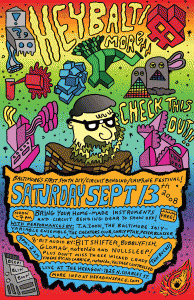 Courtesy of Aural States & the Hexagon: Win a pair of free tickets to the first Baltimore Chiptunes festival at the Hexagon Sept 13th. Leave a comment or email auralstates@gmail.com with your name and contact info to be entered. Simple as that. A winner will be drawn and announced Thursday Sept 11th.
Courtesy of Aural States & the Hexagon: Win a pair of free tickets to the first Baltimore Chiptunes festival at the Hexagon Sept 13th. Leave a comment or email auralstates@gmail.com with your name and contact info to be entered. Simple as that. A winner will be drawn and announced Thursday Sept 11th.
Photo credits (top to bottom): Nullsleep, modestdub, Richard Alexander Caraballo, Josh Davis (x2), unknown, Dr. Rek
Baltimore’s first Chiptune festival is fast approaching.
This showcase of everything right and good about video gaming hardware and electronics, will be held at the Hexagon on Sept 13th.
Starting at noon, there will be a DIY synth/circuit bending workshop featuring local luminaries including Carly Ptak (Nautical Alamanc). Once things get dark, some fantastical spazz-inducing video and music performances will keep you up til the wee-hours courtesy of a crew of NYC kids from famed chiptunes momentum-drivers and scene curators 8bitpeoples.
To prep for what is sure to be a memorable occasion, we took some time to chat with noteNdo (aka Jeff Donaldson), chiptune artist, member of WZT Hearts and former Baltimore-now-NYC resident about the scene, his music and the upcoming Baltimore fest which he is helping organize.
Audio clip: Adobe Flash Player (version 9 or above) is required to play this audio clip. Download the latest version here. You also need to have JavaScript enabled in your browser.
MP3: noteNdo – INTERLOPER
Audio clip: Adobe Flash Player (version 9 or above) is required to play this audio clip. Download the latest version here. You also need to have JavaScript enabled in your browser.
MP3: noteNdo – VIDEOLOOP
Audio clip: Adobe Flash Player (version 9 or above) is required to play this audio clip. Download the latest version here. You also need to have JavaScript enabled in your browser.
MP3: noteNdo – Video Loop Live @ Metro Gallery, Oct 9 2007 (courtesy the Baltimore Taper)
Aural States – So let’s start out with the basics, your musical background and how you got into things.
Jeff Donaldson - Well, I started playing guitar back when I was 12 and I got really into composition a bit later. Studied classical music composition at a university in Maryland and after that, I was in a lot of bands and everything. Then I realized that bands weren’t necessarily practical and started getting into electronic music. This was…like real early 2001, that I found out about the LSDJ software and the Nanoloop software for Gameboy, which just sounded great because you can pick up Gameboys for like 5 dollars. So I ordered the cartridge and I’ve been working with that. And that was my introduction to synthesis and sequencing. Before that I was doing all pencil and paper composition and guitar.

kidnapped
AS- Could you say a little more about what specifically you found to be impractical about being in bands?
JD- Well just because when there’s more than one person involved, you need to start scheduling things and that gets complicated. So I started to look more towards being able to just track sequences and I started to get more into MIDI work.
AS- Did your history with composition factor into this shift?
JD- Yeah absolutely! Because when you’re composing, you’re writing everything. That’s as much control as possible over music. Of course, once instruments are involved you lose a bit of control because of the players. But that’s what was really attractive to sequencing and MIDI, having total control over the material. And really just being self-reliant.
AS- Did you consider losing musical voices a negative aspect when moving from a full-on classical composition to something electronic?
JD- I was actually really into that. That was really attractive to me. I was brand new to synthesizers so it was a whole brand new world I was getting involved with and that was exciting…and that’s actually another reason why writing on a limited system like Gameboy was exciting. Seeing what you can squeeze out of these limited resources. Writing for orchestra, of course, you have unlimited resources theoretically. Everything’s there. You might not be able to get it all played and read, but you can still write it.
AS- That’s really interesting. I was actually talking with Julian from the Presets earlier this year and he echoed similar sentiments. He received classical training as well in Australia and felt really constrained by the rigid structure so he sought out the challenge and different sounds of electronic music, modern composers, dance music…
JD- Yeah it’s definitely a kind of liberating thing. Also, working with synthesizers, because you are actually hands-on creating the sounds and the context, it’s really great. That’s an interesting parallel, especially since a lot of my favorite music has come out of Australia.
AS- Who in particular?
JD- I’m a life-long fan of the Severed Heads, an early proto-industrial band from Australia. They started out with tape-loops and got into other things like MIDI later on.
AS- So you said you started with MIDI then moved to LSDJ?
JD- Actually it was reversed. I got into LSDJ and then MIDI sequencing afterwards.
AS- Is LSDJ only for Gameboy? What other equipment do you use?
JD- I just use LSDJ and the Gameboy classic. It’s been what I’ve been using since 2001.
AS- When you first started out, how were you writing songs? Were you just kind of tinkering and trying to see how you could realize songs?
JD- Some of that, yeah. But also a lot of improvisation. I’ve also played a lot of jazz guitar for a while and had been active in improvising for the better part of 10 years now. The other band I play in based in Baltimore, WZT Hearts, is actually all improvised also.
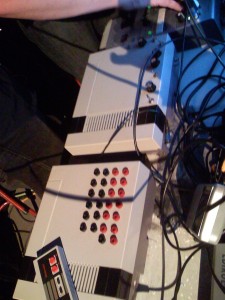 AS- Do you need to do a lot of modification to the equipment?
AS- Do you need to do a lot of modification to the equipment?
JD- No, what’s nice about the system is that you can start out with the basic Gameboy classic, and the software is in a regular old game cartridge that just pops-in. It actually accesses the sound chip directly, and you have all of your tracking parameters there too so it’s an all-in-one thing. It’s a really self-contained system, and it’s a real blessing to be able to take it anywhere, the train, the bus, and have a full music workstation right there. Of course, there are tons of mods that people have done…backlight mods for the screen, increased bass response, all kinds of cool stuff.
AS- I know the different generations of Gameboys have different tones. Have you explored any of them yet?
JD- I have a Gameboy pocket that was given to me that I used when I thought my classic was busted. I kind of do just stick to the classic though. I dunno why. I guess it’s just what I got. I don’t delve too much into trying the different ones out to see which ones sound better, but I’m comfortable with the classic.
AS- You fairly recently moved from Baltimore to New York. What was the reason for the move?
JD- Well, the past 3 years I was back and forth between New York and Baltimore. I was basically living three places this winter: New York, Baltimore and on the Chinatown bus. I was getting more work in New York so, having lived in Baltimore 10 years, I figured it was time for a change and I decided to check it out.
AS- So it was mainly born out of practicality?
JD- Yeah mostly.
AS- Now that you’ve been in New York for a bit, can you comment on the differences between Baltimore?
JD- Oh it’s night and day, like a whole different country. I don’t have a car either so I find living here to be a lot more practical in that regard. Just the sheer volume of people is nice. I kinda like being able to just disappear really easy, whereas in a small-town like Baltimore, you see a lot of the people all the time. Not a bad thing, by any means, but it’s interesting to get a different perspective. What was really great about Baltimore, was knowing if you went to a bar, you would most likely bump into 2 or 3 friends on any given night.
AS- When did you exactly leave Baltimore?
JD- Just this past February.
AS- So, being that you were here almost 10 years, you have a good perspective on the evolution of the music scene here. You were able to witness the rise of Wham City and how it changed the musical landscape here. Could you compare New York versus Baltimore?
JD- From what I’ve noticed, being here the short amount of time I’ve been here, what seems to be really unique to New York is the chiptunes scene and the new media scene, with guys like Cory Arcangel, for example, working with these old home computer systems to create such new work. That is probably the biggest similarity I could draw between New York and Baltimore.
As far as I’m concerned, Wham City saved Baltimore. Really just was what Baltimore needed in so many different ways. That was definitely 100% exciting to be in the middle of, playing the shows, watching it blow up was really fun. I’ll always be 100% grateful to have been able to participate in that. Everybody I’ve met that has been involved with them, has been really open and genuinely interested. Guys that lived there, guys that really supported what was already there in Baltimore and I think that was part of why they were so successful. They integrated really well into the current scene, but still they were like “hey look we’re doing this really rad stuff too.” It was probably the best thing that happened to Baltimore the past 10 years I was there.
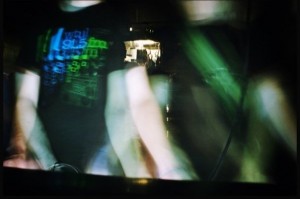
VJing with NO CARRIER at PulseWave
AS- You mentioned that the chiptunes scene is really unique to New York, yet is the biggest similarity to Baltimore. There are definitely aspects of that scene found in a lot of Wham City acts, but it’s never really been the focus for many people here. Any guesses why?
JD- I really don’t…I guess the fact that Benny from Adventure is being successful, could be an indication that people there are starting to learn more about it and check it out. I actually just recently did a show with him here in Manhattan. And he was really pleased to be here. Of course, there’s that distinction that happens. Benny does music on a modern computer with sounds that emulate the game sounds, whereas a lot of other people are using the real hardware. You know, so it’s a little bit different because of that. But really, I think the spirit is the same.
AS- I agree, I think as far as the mood and spirit of the music, Benny fits right in. It did seem there was some hostility being thrown his way from some chiptunes people, but that definitely seems to have died down.
JD- Yeah everybody loved him at the show too. Which showed him the people that have problems, they probably aren’t worth worrying about. Any scene that is still underground, you are always gonna have your purists and those types. That wanna cling onto the “hey this is my thing” sentiment. That’s any scene that’s new or starting.
Or even old. Like people that are all about say “classic” rock.
AS- Or the original example, the difficulties and tensions within classical music.
JD- Yeah, and that’s been going on forever. It’s almost built in right now for modern composition.
AS- As far as Baltimore is concerned, chiptunes is definitely still in its infancy…that is, if it is even past conception yet. One interesting thing I’ve noticed is there are bands like Entertainment System.
JD- Yeah. They’re like the rock bands right?
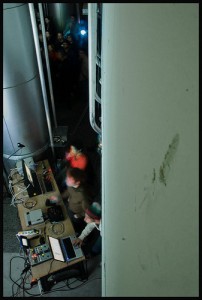 AS- Yeah, rock bands inspired by video games. They’ve had a fairly strong presence. Even an annual festival running pretty strong, integrating well with video-game inspired art. Do you think that affected interest in chiptunes at all?
AS- Yeah, rock bands inspired by video games. They’ve had a fairly strong presence. Even an annual festival running pretty strong, integrating well with video-game inspired art. Do you think that affected interest in chiptunes at all?
JD- I’m really not so sure. I did video for the last one, 16-Bit Genocide I think it was. I dunno, maybe in Baltimore people are more into rock than electronic music. You know, since chiptunes is just another genre within electronic music. Maybe people are just into the heavy metal more. From what I saw it seemed to be like metal bands covering the Tetris theme song. More like cover bands. I remember the Mini-bosses, being into them, covering the original Contra. But ultimately, I dunno. It’s an interesting question.
AS- Have you encountered any permutations like that in New York?
JD- Bands like Anamanaguchi who play live drums, guitar and bass along to original music written for the original NES console. They basically, more or less, play rock music to sequenced sound…it’s just their sounds are sequenced on Nintendo.
I haven’t seen any video game cover bands here.
AS- Do you have any other opinions on what drives the New York scene? It’s probably indisputably the hub…at least in the US. Is it because 8bitpeoples is located there or…
JD- As far as leading things in the States? I think it’s probably because it’s such an international city. Like you said too, it’s where 8bitpeoples is located and they work very closely with the Tank which is an organization that helps set up shows and do some things like this cruise at the end of the week, hosting some chiptunes artists live, cruising down a river. So you have these fun things.
Also of course, the Blip Festival is another huge reason. A 4-day international festival, basically one-of-a-kind in the world right now. That’s really exciting to be a part of. You get to see people from Japan, all over Europe…it’s just a huge thing that’s been wildly successful and I hope it keeps on growing.
AS- How insular is the scene? Do you see a lot of new faces?
JD- It always grows every show. There are always new people there. And of course there is always the core audience there too, which is great. One thing the Tank has started to do is at the monthly event Pulsewave. They’ve started to have an open-mic before the big bands play. So now anybody who’s been working on tracks, can come in, plug in their Gameboy and do a 5 or 10 minute track. The nature of the medium makes it really easy to have an open mic like that.
AS- What do you think is the biggest appeal of chiptunes? How much do you think hinges on this generational, nostalgic aspect and how much can stand on its own as a musical composition?
JD- I think that’s a really interesting question.. And it’s one a lot of people are asking themselves right now. Of course, you have that built-in nostalgia. But really, as far as I’m concerned, what that nostalgia comes down to is a familiarity and appreciation towards the sound set that is particular to these old computer systems.
I think guys like Nullsleep, Bubblyfish (Haeyoung Kim) and Bit Shifter are doing, in my opinion, is electronic. It’s just that the sound set is the old systems. I personally don’t see too much nostalgia involved with what they’re doing, because it sounds fresh.
In my own music, what I’m striving to do, is get people to forget what they are listening to is a Gameboy. I would be 100% pleased. Something I try for is to make people forget what they are listening to. It’s more about the sound than where it’s coming from.
AS- From what I’ve listened to from your work, it seems you do that fairly well. Your music has more dimensions of mood, versus purely apeing on nostalgia. Some people very blatantly go for that feel of walking through a Mario Bros level. I think it shows in your music, that you have a background in classical composition, and how you try for a lot of different types of sounds.
JD- Well thank you! I do spend a lot of time on coming up with new sounds. That’s a big thing for me. I think there’s a lot still to be squeezed out of these cool systems. All these people that are playing on the 13th are amazing at doing that also, coming up with new sounds. Haeyoung Kim is actually classically trained as well.
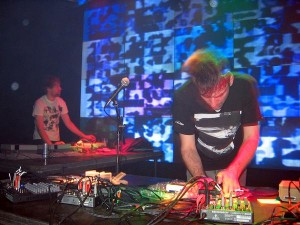 AS- So moving onto the event on the 13th. How did it materialize and what are the goals?
AS- So moving onto the event on the 13th. How did it materialize and what are the goals?
JD- I hope the goal is for people to have fun, first off. And get them to check out something…check it out while they can. I actually did something very similar last year at the Talking Head. I asked everyone this year if they want to do it, and everyone said “hell yeah, it was a blast.” It was a pretty-much packed house at the old Davis St location.
So I set this one up. Josh Atkins from Hexagon had asked me to play a show a couple months ago. I was really into the space, had never been there before since it was starting up right when I moved. He was all for doing it at his space.
He organized the early, circuit-bending workshop part. I got the bands and visual artists together for the second half. It should be really interesting. In New York we have Bent Fest and the Blip Festival every year. It’s kind of a bite-sized version of that. Baltimore is a great place for that. There’s a lot of people down here, mods and stuff, preparing electronics and all that. Nautical Alamanac for example are big time circuit benders.
AS-The scene in general has been getting a lot of attention, exponentially growing just this year. Wired wrote a lot about chiptunes recently and the Blip Festival documentary got a lot of press on Pitchfork. How do you think this is affecting the visibility of the scene? What else has been happening in this vein and what does it indicate for the growth of the scene?
JD- Having shows like the one we’re doing in Baltimore…taking everyone down there. This past March, we went to Prague to do a festival show. That’s another good example of us getting out there, doing our thing for new audiences. Also, one of the biggest indicators is going to be how well Blip Festival goes this year. Last year was a great success. Who knew that the New York Times Arts section was going to run it front page. It kind of caught everyone by surprise, but it’s great to be getting recognition for what we do.
AS- You got interviewed extensively for that documentary, Reformat the Planet, correct?
JD- Yeah.
AS- Was that ’06 Blip Festival? How did that even come together? What did you get out of it?
JD- Yeah that was the first one. And I got a crazy camera angle out of it, for one. And really I don’t know how it came together. All of a sudden these dudes started showing up with cameras and filming our shows. And it was great because these dudes were fucking die-hards. They’ve been to every Pulsewave, documented so many shows…it’s really incredible how dedicated they are to covering what’s happening here.
Which I guess is also really unique for a scene in its infancy basically. Or maybe its early adolescence. They just showed up and everyone was cool with it. It’s kind of hard to say no if people want to tape everybody’s set, edit it and make a movie out of it.
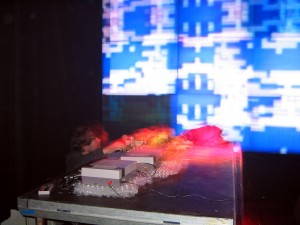 AS- It seems like something that, probably goes back to one of the initial points about the genre. How generational is this movement? How much is it reliant on our times. Increasingly society is getting more and more self-involved, people documenting every aspect of their lives. How possible would this have been 10 years ago?
AS- It seems like something that, probably goes back to one of the initial points about the genre. How generational is this movement? How much is it reliant on our times. Increasingly society is getting more and more self-involved, people documenting every aspect of their lives. How possible would this have been 10 years ago?
JD- 10 years ago I don’t think this existed, that’s for sure. I think maybe the difference here is that it’s an alternative to what I personally think is a pretty sterile rock scene. I think electronic music, in all its forms, is one of the reasons for that. Guys like Dan Deacon that are all electronic music. Maybe it’s a reaction to the 90′s which was all grunge music, no synthesizers, nothing electronic at all really. Just “rock n roll” which I guess reached its ultimate culmination in bands like the Strokes or something like that.
Speaking from my perspective, that is definitely one of the reasons I got interested in electronic music. Just rock n roll got really boring. And I think that’s one reason why people have really embraced guys like Dan Deacon, other Wham City guys, Adventure…and that’s why people are embracing the whole chiptunes thing. Because sure there’s the whole nostalgia thing, but another aspect to it is it’s also electronic music.
I think it’s people wanting something fresh and new, and there’s tons of stuff that’s fresh and new going on in chiptunes. Whether it’s visual, music or design. All kinds of stuff is happening with this re-appropriation of childhood toys, for the most part. That’s the way I see it.
What it comes down to is artists working with hardware. It just so happens the hardware is video game systems, which are just glorified toys. But they’re also home computer systems. The processor in the NES is identical to the original PCs, like the Commodore 64 and the Atari Home PCs used the same one. It’s a home computer, just specialized to play these games as a closed system.
That is one of the reasons why it’s so fresh is because now people who are coming up with this stuff are writing applications to expand the possibilities within these closed systems. It’s almost like cracking them open. These systems weren’t explored for everything they were capable of doing. The upgrading of systems was making everything obsolete within a couple years, people were just forgetting about theses systems. Going back and revisiting these systems and finding out what they are capable of is really exciting for both people in the audience as well as the people working with them.
AS- I think it’s part of this wave of people taking things from the past, going beyond the nostalgia element and actually doing it for a reason. For example, I recently picked up a vinyl that had purposefully repressed the original mono channel edition of a record because people believe that sound was integral in keeping the artistic integrity of the recording.
JD- Yeah, that’s cool. I’ve always felt that it also has to do with being at this point in history. When, as a culture, we have all these different systems available to us. If it’s like a fetish thing or niche thing, the option’s there to check it out. That’s one reason why it’s fresh to rediscover. There’s always going to be progression with technology, but all of these other systems that are considered stepping stones on the way are really neat.
The way I consider doing graphics with the original Nintendo, it’s a medium. It’s the same as using paint and a paint brush. Instead of a paint brush I’m using rewired mods and instead of paints I’m using store-bought game cartridges. Each one has its own palette for the most part.
AS- Are you seeing an influx of new artists? People with different perspectives coming in?
JD- Absolutely. Right away, our friend VBLANK, who does video, is doing really amazing stuff. He’s based in Philly. Currently, he is doing some 8-bit style graphics all on these open breadboards. He just played this past Saturday and he was phenomenal. He’s doing stuff like taking the original Atari video music system, taking audio input and visualizing it. He’s taken that concept and blown it out.
AS- It seems there’s a lot of potential to take the genre, somewhere really extreme. You’ve got people that are circuit bending live. Soldering right on the stage, bordering on becoming equally performance art and music. What do you think is the appeal of that, versus something purely musical? Do you think that has any appeal to a wider audience or is it going to be more of a niche within a niche?
JD- Well I think you are talking about Tristan Perich of Loud Objects. That, I think, is excellent because it’s all about process and end result of that process. Not quite sure where it might fall categorically, but that’s where I see that. It’s opening up the process for people to see what’s going on. Like a cross-section of the finished product that you usually hear, some of these instruments that they’ve circuit bent.
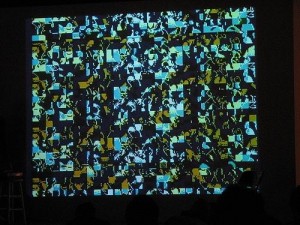 AS- How far have people gone with the game systems, like Nintendo 64 or more advanced? Is there any sort of line drawn for systems with sound chips that are too hi-fidelity, too close to the sounds that are almost being escaped from with the lo-fi systems?
AS- How far have people gone with the game systems, like Nintendo 64 or more advanced? Is there any sort of line drawn for systems with sound chips that are too hi-fidelity, too close to the sounds that are almost being escaped from with the lo-fi systems?
JD- I don’t think there’s really a limit. I think a good example of that is integration. Guys like Touchboy who use a Korg Electribe, MIDI-slaved to LSDJ. I think it’s more about integration than any limit. Another good example is Voltage Controlled, who will be doing video on the 13th. He codes for the GP2X. And that’s a pretty modern system. He does video with two handhelds and it’s incredible work.
AS- On that note, since GP2X is Korean, have you checked out the scene overseas at all? Particularly Japan? You mentioned before that people internationally flock to New York for the annual festivals like Blip. It seems they would be most well-poised to goto the extremes with the genre, purely on the basis of how integrated technology is with their culture.
JD- Yeah guys like Hally who does amazing music and a lot of development also, I believe. I’m actually not as familiar with the Japanese artists as I should be. I’ve been planning to go over there for a while. There’s definitely a different aesthetic vibe going on. There’s some extreme stuff from what I’ve heard.
AS- Another aspect of this is the increasing visibility and professional recognition of current generation video game music. Most notably, Nobuo Uematsu, scored many of the Final Fantasy games and his work has been played by numerous symphonies around the world. Even this summer here in Baltimore, there was a production of PLAY! A Video Game Symphony at the Meyerhoff, which features music from many popular video games performed by a full orchestra and chorus. Do you think that is going to be important for the growth of chiptunes?
JD- I think it might increase awareness, and encourage more people to explore the chiptunes genre. I think that’s probably the best thing you could hope for happening really, getting these BSO goers and others who might not normally get exposure to seek it out.
AS- As far as your own music, what do you have planned and what’s percolating for the near future?
JD- Well right now I’m working on my set for Tuesday. Hopefully getting that done. Probably going to get some video work together for the 13th. I’ve had a couple offers to do video…for an Adventure track, hopefully get more tracks done for Nullsleep. I guess what I’m really hoping to do is get more stuff released once I have my set finished, the audio portion. I’m also working on doing some original graphics for Blip Fest for Don Miller (No-Carrier), who codes for the NES.
Collaborations basically. Almost all collaborations, once my current music is up to my ridiculous standards.
AS- Yeah, this time though, the collaborations will be much easier to schedule than a band practice.
JD- Haha yeah definitely. Hopefully we can collaborate online. That makes life a lot easier.
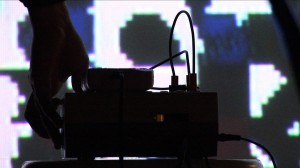 AS- Great. So you make your sets fresh every time?
AS- Great. So you make your sets fresh every time?
JD- For the most part, yeah. The main track that I’ve had, that everybody who’s checked out my Myspace has heard, that track crashed, I was using a real early version of LSDJ and it just wiped out. That one right now is in the process of being retracked and I hope to have that done soon because I do like that played differently every time. That’s one aspect of LSDJ that I find to be really really crucial to what I’m trying to do. Continuous tracks and stuff like that.
AS- So a lot of your effort is focused on performances and video. How much, if any, of your effort is put into recorded stuff?
JD- Oh geez, maybe 5% right now.
AS- So that doesn’t really interest you?
JD- Oh no, it does. It’s just that I have ridiculous standards for my own music. Once I feel pretty good about something, I’ll probably start getting it out.
AS- Do you see an album in your future?
JD- I’d love to do an album. I guess I’ll sort of have to cross that bridge when I come to it. If someone’s interested though, that would give me some added incentive to get stuff done!
AS- Well, that’s all I’ve got. We’ve got the First Baltimore Chiptunes Fest at the Hexagon on Saturday Sept 13th, workshop during the day, performances at night. Any other final things you’d like to say or plug?
JD- I guess just Blip Festival, December 4th-7th, it’s gonna be at Studio B in Brooklyn this year. So that’s going to be awesome. And hopefully a video with Adventure in the near future and a Nullsleep video!
Related posts
- NoVo / Nouveau: Jason Urick, Microkingdom, noteNdoPhoto credit: Josh Sisk [Audio clip: view full post to...
- Preview: Aural States presents So Percussion, Microkingdom, Gestures, Adam Holofcener + Jeff Zeiders, the True Vine Trio (Jason Willett, MC Schmidt, Owen Gardner)Tonight will be an inspired night for music in Baltimore....
- NoVo / Nouveau: Live Audio, Day 4 – noteNdo (2010.03.05)Photo credit: Tedd Henn [Audio clip: view full post to...
- Interview: Small Sur (w/ Bob Keal)We’ve lavished praise upon Small Sur’s first full-length, released earlier...
- Interview: Girl Talk (w/ Gregg Gillis)[Audio clip: view full post to listen] MP3: Girl Talk...





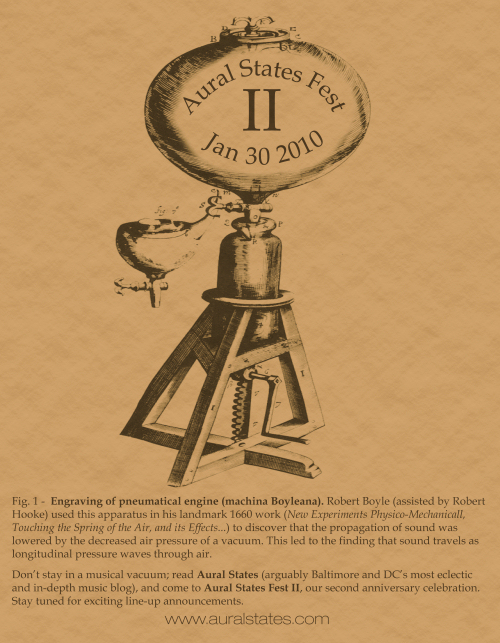
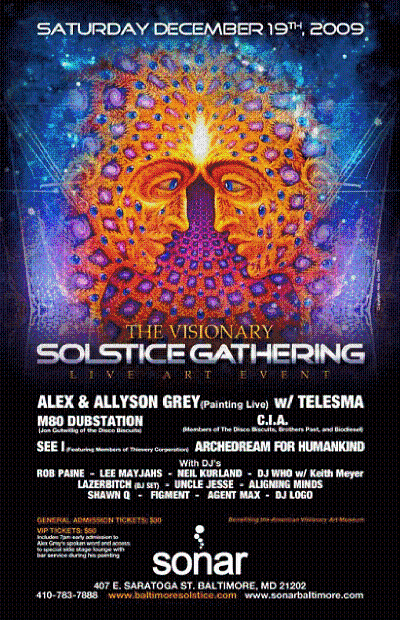









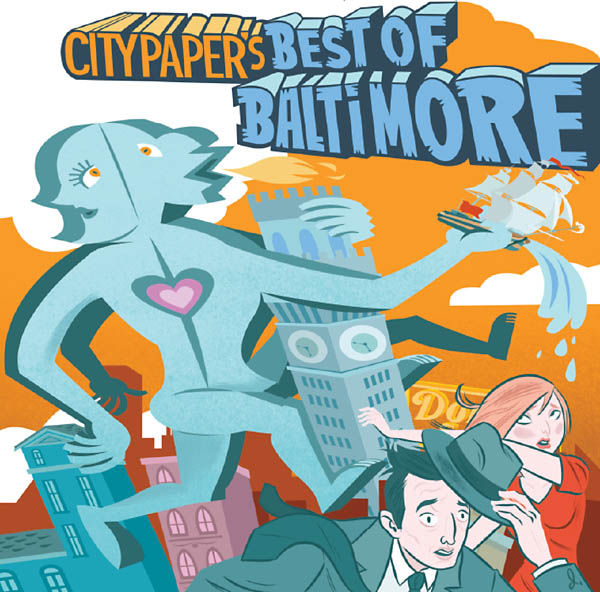
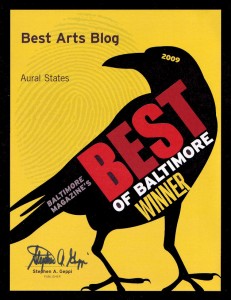


 Double Dagger: Masks EP
Double Dagger: Masks EP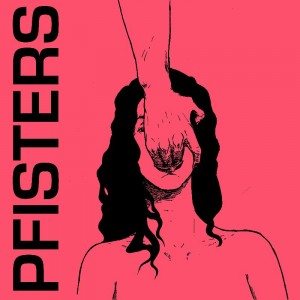 Pfisters: Narcicity
Pfisters: Narcicity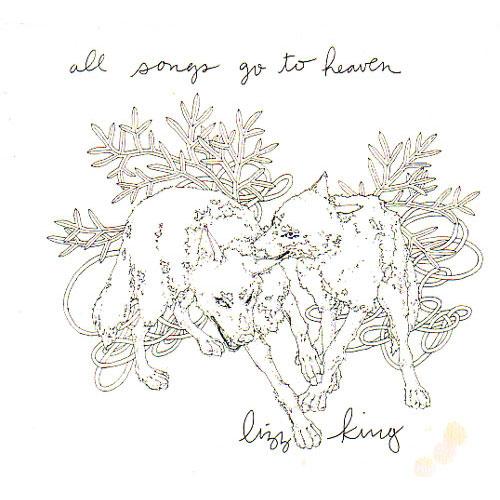 Lizz King: All Songs Go To Heaven
Lizz King: All Songs Go To Heaven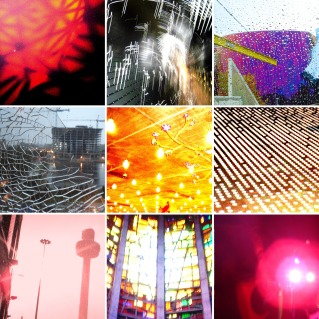 Imperial China: Phosphenes
Imperial China: Phosphenes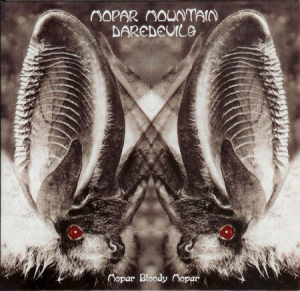 Mopar Mountain Daredevils: Mopar Bloody Mopar
Mopar Mountain Daredevils: Mopar Bloody Mopar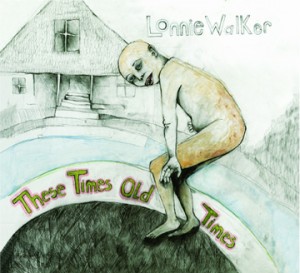 Lonnie Walker: These Times, Old Times
Lonnie Walker: These Times, Old Times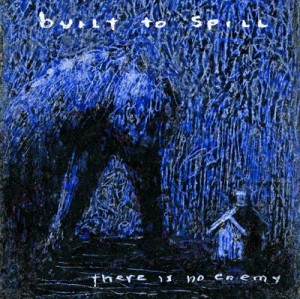 Built to Spill: There Is No Enemy
Built to Spill: There Is No Enemy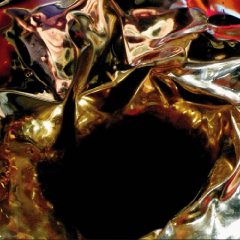 Hypnotic Brass Ensemble: Hypnotic Brass Ensemble
Hypnotic Brass Ensemble: Hypnotic Brass Ensemble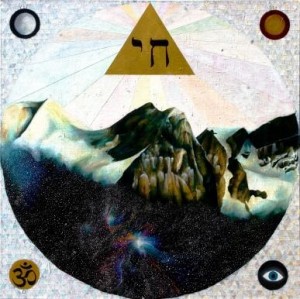 Secret Mountains: Kaddish EP
Secret Mountains: Kaddish EP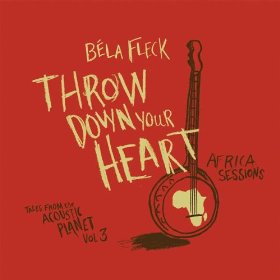 Bela Fleck: Throw Down Your Heart: Tales From the Acoustic Planet, Vol. 3 -Africa Sessions
Bela Fleck: Throw Down Your Heart: Tales From the Acoustic Planet, Vol. 3 -Africa Sessions Lands & Peoples: Lands & Peoples EP
Lands & Peoples: Lands & Peoples EP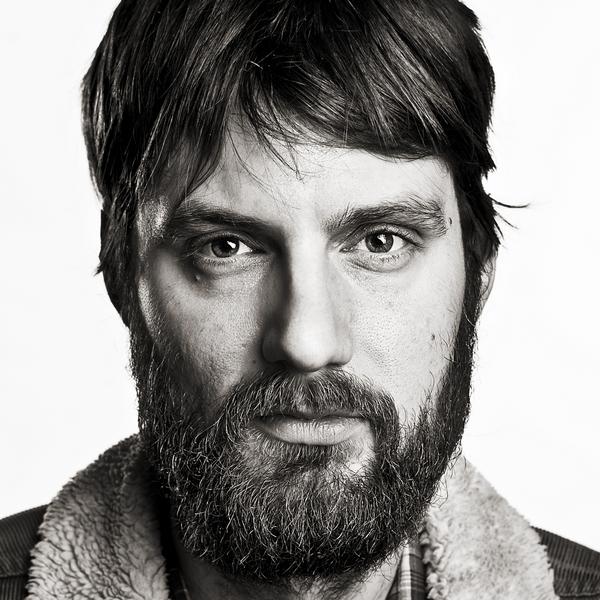 Caleb Stine: Eyes So Strong and Clean
Caleb Stine: Eyes So Strong and Clean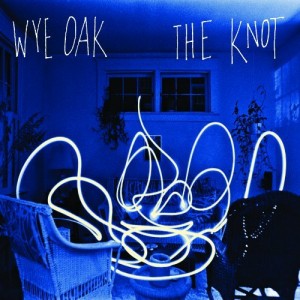 Wye Oak: The Knot
Wye Oak: The Knot Pontiak: Maker
Pontiak: Maker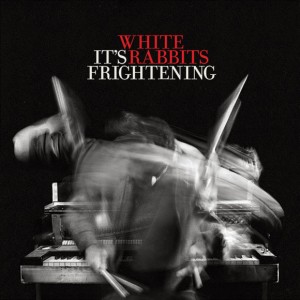 White Rabbits: It's Frightening
White Rabbits: It's Frightening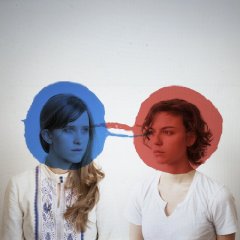 Dirty Projectors: Bitte Orca
Dirty Projectors: Bitte Orca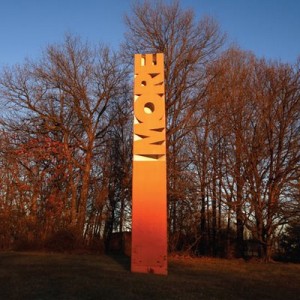 Double Dagger: More
Double Dagger: More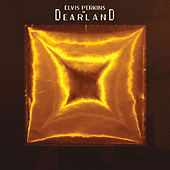 Elvis Perkins in Dearland: Elvis Perkins in Dearland
Elvis Perkins in Dearland: Elvis Perkins in Dearland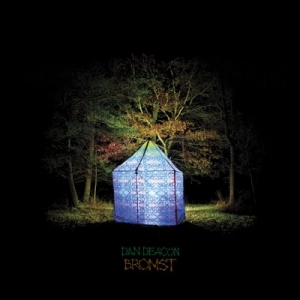 Dan Deacon: Bromst
Dan Deacon: Bromst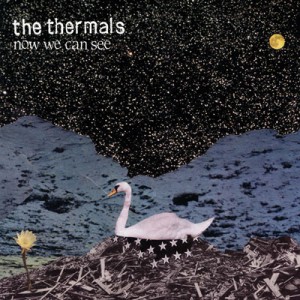 The Thermals: Now We Can See
The Thermals: Now We Can See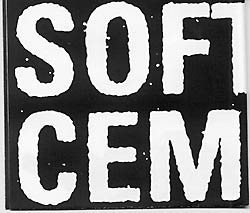 Soft Cement: Think About It EP
Soft Cement: Think About It EP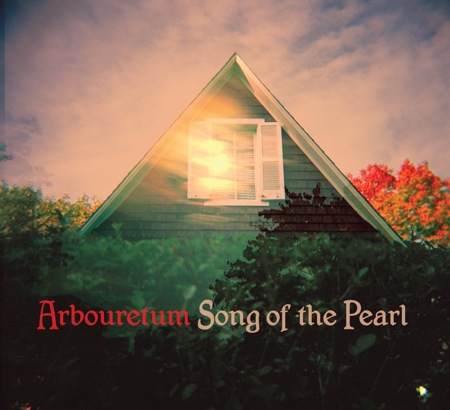 Arbouretum: Song of the Pearl
Arbouretum: Song of the Pearl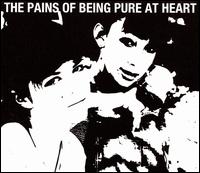 The Pains of Being Pure at Heart: The Pains of Being Pure at Heart
The Pains of Being Pure at Heart: The Pains of Being Pure at Heart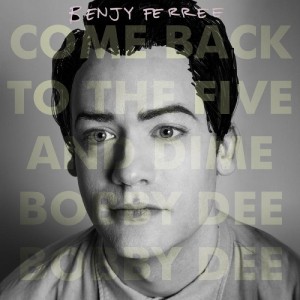 Benjy Ferree: Come Back to the Five and Dime, Bobby Dee Bobby Dee
Benjy Ferree: Come Back to the Five and Dime, Bobby Dee Bobby Dee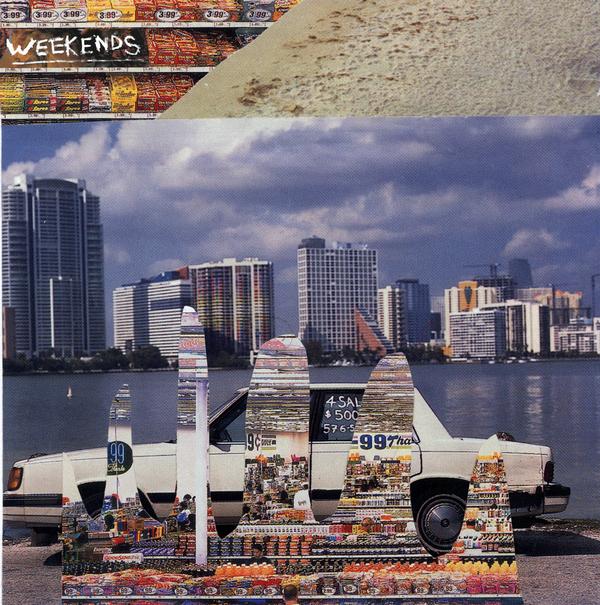 Weekends: Weekends
Weekends: Weekends Height With Friends: Baltimore Highlands 12" LP, Limited-Run Vinyl Only
Height With Friends: Baltimore Highlands 12" LP, Limited-Run Vinyl Only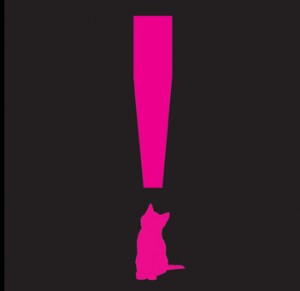 Caverns: Kittens! EP
Caverns: Kittens! EP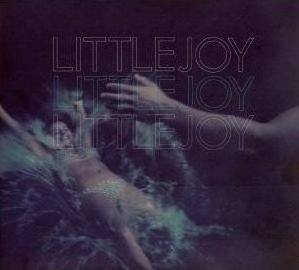 Little Joy: Little Joy
Little Joy: Little Joy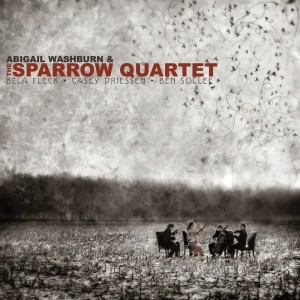 Abigail Washburn & the Sparrow Quartet:Abigail Washburn & the Sparrow Quartet
Abigail Washburn & the Sparrow Quartet:Abigail Washburn & the Sparrow Quartet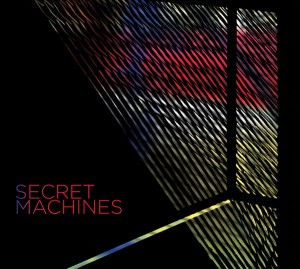 The Secret Machines: Secret Machines
The Secret Machines: Secret Machines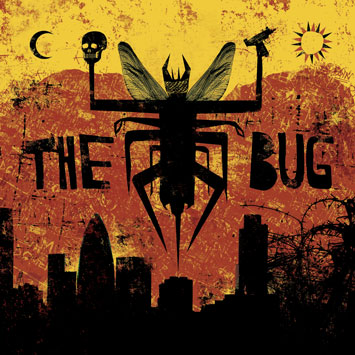 The Bug: LondonZoo
The Bug: LondonZoo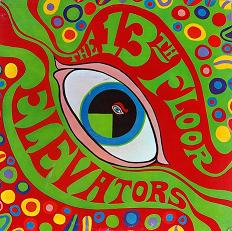 13th Floor Elevators: Psychedelic Sounds of the 13th Floor Elevators (Vinyl Mono LP only)
13th Floor Elevators: Psychedelic Sounds of the 13th Floor Elevators (Vinyl Mono LP only)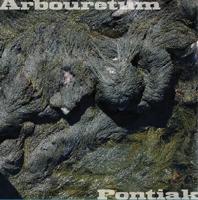 Arbouretum/Pontiak: Kale (Vinyl LP only)
Arbouretum/Pontiak: Kale (Vinyl LP only) Small Sur: We Live in Houses Made of Wood
Small Sur: We Live in Houses Made of Wood AbeVigoda: Skeleton
AbeVigoda: Skeleton ImperialChina: Methods: EP
ImperialChina: Methods: EP
AWESOME INTERVIEW!!! So much information and insight into this new genre of music and art. Thanks!